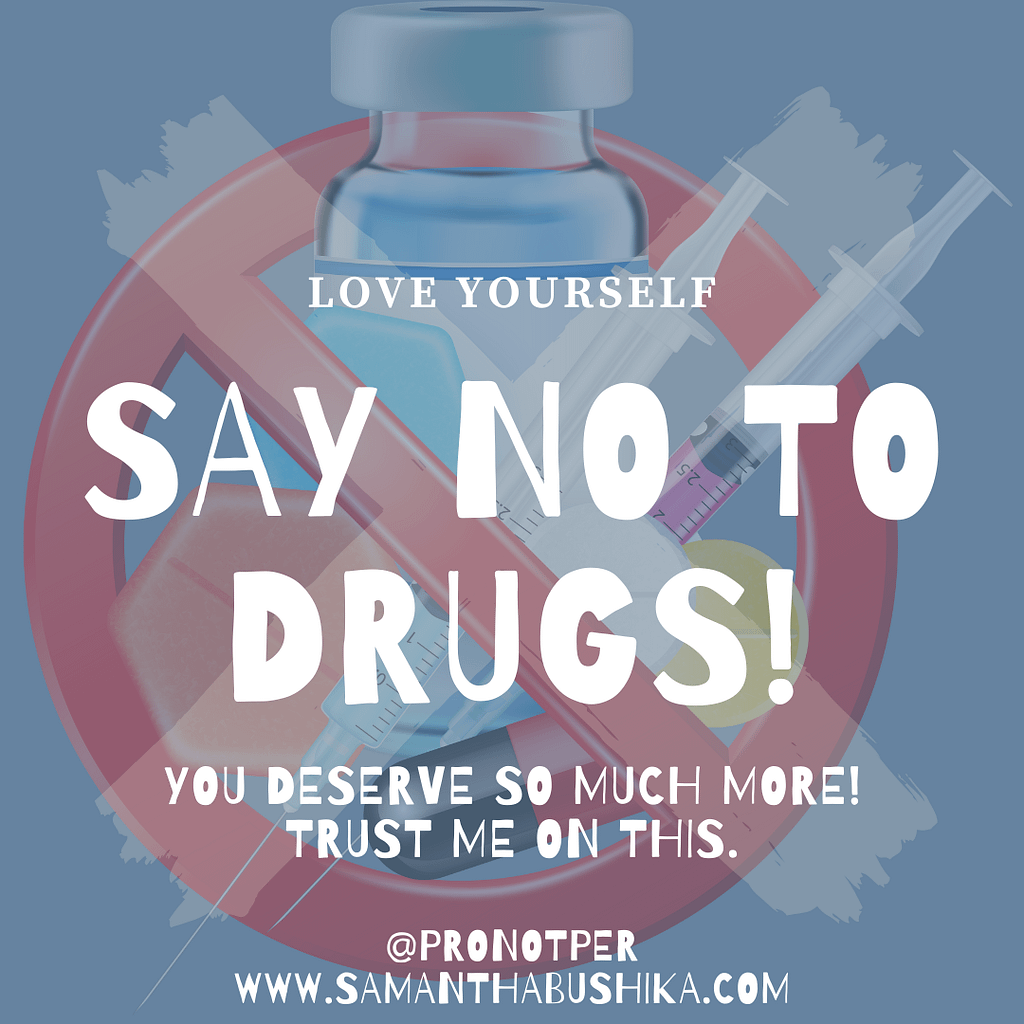Introduction
Hello there! I’m thrilled you’ve decided to join me as we delve into the world of EFT tapping for addiction, or as it’s formally known, Emotional Freedom Techniques (EFT). If you’re curious about not traditional ways to boost your wellness, especially through something as challenging as addiction recovery, which I can tell you first hand is one of the most difficult and painful of all of life’s experiences.
First, let me tell you that I’m someone who is not only one of the hugest advocates of EFT tapping for addiction, but someone that has also experienced its GAME CHANGING remarkable effects personally.
Tapping came into my life during a tumultuous time when I was grappling with stress and anxiety. The relief I found through this technique was so profound that I became passionate about sharing it with others, particularly those battling with mental health issues and addictions like me.
I believe in nurturing hope and healing in every possible way because I used to be someone who everyone that knew me thought change was not even a slim possibility for. Now, look at me here proving them all wrong and showing them what we can do!
“With EFT, we tap on specific points on the face and body while bringing our attention to the problem we want to work on.”
— Nick Ortner, author and producer of “The Tapping Solution.
Fast Facts About EFT Tapping
- EFT (Emotional Freedom Techniques) tapping combines ancient Chinese acupressure with modern psychology, using the body’s energy meridian points.
- EFT can be used alongside traditional addiction treatment methods, enhancing the overall effectiveness of recovery programs.
What is Tapping?
Tapping combines elements of ancient Chinese acupressure and modern psychology. However, don’t worry; there’s no need for needles! That’s over. Never again, right? Right!
We use our fingertips to tap on specific meridian points on the body while focusing on emotional stress. It’s simple yet surprisingly powerful in calming the mind and body. In our addictions peace isn’t something we really experience, which makes it even more valuable in our recoveries.
Fast Facts: EFT Tapping for Addiction Continued
- Studies have shown that EFT tapping can significantly reduce cravings for substances like alcohol and cigarettes, aiding in addiction recovery.
- EFT is effective in reducing stress and anxiety, which are common triggers for relapse in addiction recovery.
- EFT tapping can be practiced anywhere, anytime, making it a convenient tool for managing cravings and emotional distress.
Why EFT Tapping for Addiction?
As I mentioned above addiction is the toughest of all life experiences, often leaving us trapped in a cycle of reliance and regret, amongst other things. Traditional treatments can work, but sometimes,
adding another layer, like tapping, can equip you with a whole other set of tools for recovery. My goal is always to share with you the things that worked for me and got me to where I am today.
Twenty years in a cycle of addiction and jail got me to the point where I was willing to try ANYTHING. I was not disappointed. I did the ‘impossible’ and I’m here to tell you that you can too.
Buckle up and open your mind because I am going to walk you through how tapping can guide and nourish your journey to recovery, helping you regain control over your emotions, heal, and, ultimately, save your life, much as it saved mine.
Fast Facts: EFT Tapping for Addiction Continued
- Many users report feeling immediate relief from emotional distress after just a few minutes of tapping.
- EFT encourages individuals to take control of their own healing process, empowering them in their recovery journey.
- EFT tapping addresses both the emotional and physical aspects of addiction, promoting overall well-being.
- Research has shown that EFT tapping can lower cortisol levels, which helps in managing stress and emotional regulation.
- EFT tapping is often used in group therapy settings, fostering a sense of community and shared healing among participants.
Scientific Basis
While tapping might seem too good to be true, numerous studies back up its effectiveness. Research shows that tapping helps reduce stress hormones like cortisol and can significantly decrease symptoms of anxiety, depression, and PTSD. This is why it’s gaining popularity not just among those dealing with everyday stress but also in professional settings like counseling and psychotherapy.
In the realm of addiction, tapping becomes a powerful tool because it helps address the emotional underpinnings of dependency. By calming the nervous system and fostering a greater sense of emotional stability, individuals in recovery can better manage cravings and impulses.
EFT Tapping for Addiction Recovery
Now that we understand what tapping is and how it works, let’s delve deeper into how it specifically aids in addiction recovery. It is what you came here for, right? Good. I gotchu. Addiction often has deep emotional underpinnings—whether it’s coping with stress, trauma, or emotional pain. Don’t we know it? Tapping can be a transformative tool to address these root causes, making it a valuable companion in our recovery journeys. To this day I still can’t believe I have eight long beautiful years of radiant recovery.
Looking back I can clearly see that what changed was that I opened my mind to the possibility that what would eventually get me sober was definitely something I hadn’t yet tried, and then I set out to try all of the things that were at the opposite side of the spectrum to my belief system. Don’t you know that is exactly what worked for me and it may be what works for you as well. (Fingers crossed!) You got this!
Connection Between Emotional Regulation and Addiction
Addiction isn’t just a physical struggle; it’s an emotional one, and don’t we know it. Many of us turn to substances or addictive behaviors as a way to manage our overwhelming emotions or to escape stressful situations. This is where emotional regulation comes into play—a key skill that can be significantly improved through tapping. By enhancing your ability to manage emotions, you can decrease the likelihood of relapse, and this is the true game changer.
How Tapping Can Help
Tapping offers a dual benefit in addiction recovery: it reduces the intensity of emotional distress and helps reprogram the brain’s response to triggers. Here’s how tapping can help in specific aspects of addiction recovery:
- Managing Cravings: Tapping can help reduce the intensity of cravings. By tapping on specific points while focusing on the craving itself, many find that the craving begins to decrease in intensity within minutes, making it easier to resist.
- Reducing Anxiety and Stress: Since stress and anxiety are common triggers for our use, reducing these feelings can help prevent relapse. Tapping helps lower stress by calming the nervous system, making stressful situations more manageable.
- Processing Trauma: Many of us that struggle with addiction have experienced traumatic events. Tapping has been shown to be effective in treating symptoms of PTSD and can be a gentle way to work through traumatic memories without becoming overwhelmed. I can personally attest to the efficacy of tapping for me in all of the above areas.
Evidence from Studies
Several studies highlight the effectiveness of tapping in the context of addiction recovery. For example, research has shown that EFT can significantly reduce psychological distress and even improve treatment outcomes when combined with conventional therapies. In another study, individuals who used tapping during their recovery reported fewer cravings and a higher level of control over their impulses.
Practical Tips for Using Tapping in Recovery
If you’re considering incorporating tapping into your recovery process, and I highly recommend that you do as you may have guessed, here are some practical tips to get started:
- Start Small: Begin by using tapping to manage small, manageable stressors or mild cravings. This helps you build confidence in the technique before applying it to more intense emotions.
- Consistency is Key: Regular practice can help make tapping more effective. Try to integrate it into your daily routine, even if just for a few minutes, and it helped me to keep in mind that small positive changes every day lead to big results over time.
- Seek Guidance: If possible, work with a tapping practitioner or a therapist trained in EFT. This can help ensure that you’re using the technique correctly and addressing the right issues, but if you’re like me and can’t afford to do so you will be just fine. It’s definitely not a requirement, just a recommendation. You can always contact me or post your question in our forums.
Understanding Addiction
Before we jump into tapping, let’s quickly define what we’re up against. Addiction is a complex condition, a brain disorder that involves compulsively engaging in rewarding stimuli, despite adverse consequences. It can be substances like alcohol or opioids, or behaviors like gambling.
What’s crucial is understanding that at the heart of addiction often lies a struggle with managing stress and emotions. I would also like to add that this is an all-inclusive community, so whether or not you deal with any of these issues or any others you are welcome here.
Now, we’re going to explore the origins of tapping, how it works, and how it can be a game changer in managing the emotional whirlwinds of addiction. I’m excited to embark on this journey with you, sharing a tool that offers not just relief but a pathway to a more empowered and balanced life. Let’s tap into a better future together! Funny thing is I am totally serious. What? I am!
Understanding Tapping
Welcome back! Now that we’ve established why we’re exploring tapping as a supportive tool in addiction recovery, let’s dive into what tapping really entails.
Understanding tapping requires a deep dive into its nuanced blend of ancient acupressure and modern psychology. Unlike many surface-level explanations, it’s crucial to recognize that tapping is not merely a quick fix but a sophisticated process that addresses the underlying emotional roots of addiction. By focusing on specific meridian points while verbalizing affirmations/scripts, tapping helps to release disruptions in the body’s energy system that often manifest as cravings and emotional distress.
Moreover, what sets EFT apart is its adaptability; it can be personalized to target individual triggers and traumas, making it a versatile tool in our recovery arsenal. This technique also fosters a profound sense of self-awareness and empowerment, encouraging individuals to actively participate in their healing journey rather than passively receiving treatment.
Thus, understanding tapping means appreciating its holistic approach to restoring emotional and physical balance, paving the way for sustainable recovery. I’m eager to share with you how this simple technique can offer profound changes in managing emotions and stress.
Origins of Tapping
Tapping, or Emotional Freedom Techniques (EFT), is relatively young in the field of therapeutic practices. Developed in the 1990s by Gary Craig, a Stanford engineering graduate deeply interested in personal improvement psychology, tapping is based on the principles of both ancient Chinese acupressure and modern psychology. The beauty of tapping lies in its simplicity and the blend of these two worlds, aiming to heal emotional distress through physical touch points on the body.
The Process of Tapping
Tapping is beautifully straightforward, and you can do it on your own or with a practitioner. Here’s how it typically works:
1. Identify the Issue:
First, you pinpoint the issue causing your emotional upset. This could be a craving, a stressful memory, or a nagging anxiety. I highly suggest paying attention to your Chakras. Your Chakras are an integral part in a healthy mindset. If you happen to be interested in learning about other holistic methods that I used on my journey check out the post slide below.
2. Test Your Emotional Intensity:
Think about how intense your negative feeling or discomfort is on a scale of 0-10. This helps in measuring your progress after tapping, and be honest. Its totally okay to say your at a 10.
3. The Setup:
While continuously tapping the karate chop point (the side of your hand), you acknowledge your issue and affirm yourself by saying something like, “Even though I have this [anxiety], I deeply and completely accept myself.”
4. Tapping Sequence:
Next, you tap through a sequence of points on the body, typically starting from the top of the head, down to the eyebrow, side of the eye, under the eye, under the nose, the chin, the beginning of the collarbone, under the arm, and finishing at the top of the head again. While doing this, you focus on your issue.
5. Check Your Intensity Again:
After a round of tapping, you reassess your emotional intensity level. If it’s still higher than you’d like, you can go through another round of tapping.
Integrating Tapping with Other Treatments
Tapping can be most effective when used as part of a broader recovery plan. It can complement traditional therapies like Cognitive Behavioral Therapy (CBT), medication-assisted treatment, and support groups. Discuss with your healthcare provider how best to integrate tapping into your overall treatment plan. Adding tapping to your toolkit can and will empower you to manage most emotional challenges that life throws at you.
Incorporating Tapping into Recovery Programs
Tapping can seamlessly integrate into various recovery strategies. Whether you’re attending therapy sessions, participating in support groups, or following a structured recovery program, here’s how you can add tapping to enhance your journey:
1. During Therapy Sessions: If you’re seeing a therapist, discuss the possibility of incorporating tapping into your sessions. Many therapists are open to or are already trained in EFT and can guide you through the process.
2. As Part of Daily Routine: Set aside time each day for tapping. It could be first thing in the morning, during a break at work, or right before bed. Consistent practice helps reinforce the benefits and stabilize your emotional wellbeing.
3. In Response to Triggers: Have a plan to use tapping when you feel triggered. By immediately using tapping to manage potential relapses, you can gradually diminish the intensity and power of those triggers.
4. Alongside Meditation or Mindfulness: Combine tapping with other calming practices like meditation or mindfulness for enhanced effects. Tapping before a meditation session can help clear your mind and improve your focus.
Guidelines for Practice
1. Be Specific About Your Feelings: When using tapping, clearly identify and focus on one specific issue or emotion at a time. This focus helps target the energy disruption related to that particular issue.
2. Use Positive Affirmations: After focusing on the negative emotions and going through the tapping points, end with a round of positive affirmations to instill a sense of peace and accomplishment.
3. Monitor Your Progress: Keep a journal of your tapping sessions, noting down what you focused on, the intensity of your feelings before and after, and any changes you observe over time.
Safety and Limitations
Emotional Intensity: Sometimes, tapping can bring up intense emotions, especially if you’re dealing with deep-seated issues. If you find yourself feeling overwhelmed, take a break and seek professional help if needed.
Not a Standalone Treatment: Tapping should not replace traditional medical treatment or psychotherapy but rather serve as a complementary tool.
Physical Considerations: While rare, tapping certain points too vigorously can cause bruising or discomfort. Practice gentle tapping, especially if you are sensitive.
Empowering Yourself Through Tapping
Ultimately, tapping is about empowering yourself to take control over your emotional and physical well-being. As you continue to use this tool, you’ll likely discover more about yourself and how you handle stress, triggers, and recovery. The key is patience and persistence.
Next up, we will explore real-life success stories from individuals who have incorporated tapping into their recovery process, providing you with further inspiration and confidence to continue your journey. Stick around for these uplifting stories in the next chapter!
Additional Resources
As we conclude our journey exploring the benefits of tapping in addiction recovery, it’s important to ensure that you have access to the best resources available to support your continued growth and use of tapping. This chapter is dedicated to providing you with a variety of tools, further reading, and professional assistance to deepen your understanding and practice of tapping effectively.
- Books
– The Tapping Solution: A Revolutionary System for Stress-Free Living by Nick Ortner – This book offers a comprehensive guide to using tapping for various aspects of life, including stress relief and emotional healing.
– Freedom from Addiction: The Chopra Center Method for Overcoming Destructive Habits by Deepak Chopra and David Simon – While not exclusively about tapping, this book provides insights into holistic approaches to overcoming addiction.. *These are affiliate links and I earn a small commission when you purchase using my links. Though they are of no cost to you they help me keep this blog going so I can continue bringing you great content. Thank you!* - Websites:
– Emotional Freedom Techniques (EFT) Official Website – A resource hub for learning more about EFT, including tutorials, research articles, and case studies.
– The Tapping Solution App – An app that provides guided tapping sessions on a wide range of topics, including addiction recovery. - Online Courses and/or Tutorials:
– EFT Universe – Offers free tutorials and certifications for those who want to delve deeper into the practice of tapping and perhaps even teach others. - Videos:
– EFT Universe Introduction to Tapping Video
– The Science Behind EFT Tapping: 7 Powerful Ways That EFT Tapping Can Transform Your Life
– The Latest Science on EFT Tapping
- Podcasts:
– The Tapping Solution Podcast
- Studies & Research: –Outcome Studies, Clinical Reports, Mechanisms Research, and Review Articles
Professional Help
1. Finding a Certified EFT Practitioner:
– Visit websites such as the EFT International or EFT Universe to find certified practitioners. These professionals are trained to guide you through the process safely and effectively, particularly when dealing with complex issues like addiction.
2. Integrative Therapy Sessions:
– Consider therapists who incorporate EFT into broader therapeutic practices. This integration can be particularly beneficial in addressing the multifaceted nature of addiction.
Free YouTube EFT Sessions
Choose one of the titles below and click to experience EFT Tapping for yourself. You won’t regret it. Click the buttons below to view.
Online and Community Support
1. Forums and Support Groups:
– Look for online forums and social media groups dedicated to tapping. These can be great spaces to share experiences, gain insights, and find encouragement from others who are also using tapping as a tool in their recovery journey.
The ONLY Tapping Video You’ll Ever Need
2. Workshops and Meetups:
– Participate in workshops and meetups about EFT. These gatherings can offer a supportive community and hands-on guidance in your practice.
Tools and Apps
1. Mindfulness and Meditation Apps:
– Apps like Calm and Headspace offer guided meditations that can complement your tapping practice, especially in managing stress and emotions effectively.
2. Journaling Apps:
– Use apps like Day One or Journey for tracking your tapping sessions, emotional states, and overall progress. Journaling can enhance your awareness and reflection, which is crucial for recovery.
Final Thoughts
EFT tapping is one of several holistic approaches to mental illness and addiction that I have shared with you on this blog. I share these approaches because, for twenty years of my life, I did NOTHING but fail over and over, hurting those I loved by constantly perpetuating the same cycle of incarceration and addiction. I tried everything and then tried everything again. Nothing worked, but what could I do? Give up? Nah, that’s just not my style.
Some of you may have an idea of what it feels like to repeatedly lose everything as a result of petty, non-violent, drug-related offenses or things like an “unauthorized visitor” or “being out of place,” If not, I truly hope you never do. This is why I do what I do. To prevent others from experiencing the nightmare existence that I endured.
I had never in my life even used the word holistic and had not a care in the world about personal development or health and wellness. I was just so exhausted with this cycle. I had ZERO willpower, and no resolve. I had resigned myself to a life of selling drugs to support my habit. I had no aspirations and no purpose. I was made into the example in my small town. I ALlowed how people in the injustice system treated me to determine my sense of self. It hurt so badly because I was always a good person. As I was told once, “a good person with a bad drug problem.”
I don’t want that for you. I would do just about anything to prevent that for any of you. I know how I would have felt had someone started putting this in my pipe and trying to get me to smoke it back then. (Pun intended.) Never in a million years. NEVER. Let me just tell you from the bottom of my heart I have experienced real and true magic, and I want that for you so badly, but you have to trust in my experiences and just… keep an open mind because I wouldn’t put so much effort into getting my story and experiences out there if I didn’t believe in them as a direct result of my own personal experience with them.
Conclusion
JUst give it a good old college try but stick with it for a long enough time for the magic to begin. I am here to help you in any way I can and I mean that. Embracing tapping in your recovery journey opens up a new avenue for healing and self-discovery. Whether you are just beginning or looking to deepen your practice, the resources provided here can support and enrich your journey. Remember, recovery is a personal process, and integrating new tools like tapping can make a significant difference in your overall wellbeing and success just as it did in mine.
As we wrap up this guide, I hope you feel equipped and inspired to continue exploring tapping and some of the other alternative practices I’ve shared, and will share in the future, that support your recovery and help you live a more fulfilled life minus the worry of mental instability or how to not be sick. Here’s to taking control of your journey and tapping into your best self!
If This Post...
If this post resonated with you or you have something you would like to add or share, please do so in the comments below. You know I love to hear from you. You could also support my work by liking, sharing, commenting, subscribing, following, and registering to join our free-of-charge, supportive, all-inclusive, judgment-free, meet-you-where-your-at online community where teachers learn, and learners teach all while working together to #provethemallwrong and #showthemwhatwecando.
In our support forums, you can give support or receive support all on the same day. This community is for all of us who are more progressors, less perfectors. Addiction is not a prerequisite. All are welcome. This is a new, growing community, so please have patience, and if there are any issues, please contact me at support@samanthabushika.com
Post Off Quote
EFT Tapping is energy healing. It has helped me show up for myself and release the fear of being seen.
-Nikki Lynn
Post Off Affirmation
Even though I procrastinate and put off doing things out of my comfort zone because I don’t feel confident}, I choose to deeply and completely love, honor and accept myself.
Join Me
Work With Me















































0 Comments